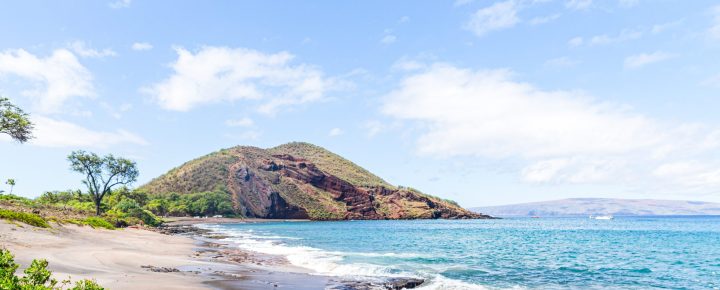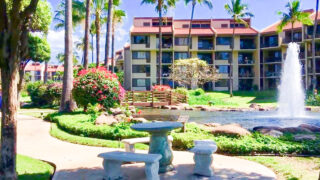How do you feel about Maui’s plan to eliminate 7,000 vacation rentals? As tourism continues to fuel the economies of iconic island destinations worldwide, places like Greece and Bali are also grappling with managing short-term rentals and their impact on local communities.
While Hawaii faces distinct challenges and legal frameworks that differ from Greece or Indonesia, what these nations do with their short-term rentals may help Hawaii decide what comes next, including how policies are implemented across state and federal jurisdictions.
Overtourism in Greece: new fees and short-term rental bans.
Property owners who convert short-term rentals into long-term housing are set to receive tax incentives, signaling Greece’s intent to prioritize resident housing over vacation rentals.
This approach bears similarities to what has been proposed for Maui, where vacation rentals are said to have been a key factor in driving up housing costs and reducing the availability of long-term housing for residents.
Greece recently made waves by introducing policies to address overtourism in its most popular destinations, including Athens, Santorini, and Mykonos. The islands are set to impose additional fees during peak season to help reduce the strain of tourism. Funds are being earmarked to offset the environmental and infrastructural damage caused by visitors.
In Athens, the government announced a ban on new short-term rentals in several districts for at least one year. These measures are intended to help curb rising rent costs and preserve housing availability for residents.
Bali development moratorium.
In Indonesia, the island of Bali is implementing a moratorium on constructing new villas and hotels in certain areas. This may last up to a decade and is intended to prevent further overdevelopment and preserve Bali’s natural and cultural resources. Bali’s rapid tourism growth and its increasing number of foreign residents have led to concerns about crime, job competition, and land degradation.
This shift towards quality tourism—one that promotes sustainable practices and benefits residents—comes in response to growing tensions between tourists and residents, much of which has been documented on social media.
Maui vacation rental conundrum: a similar challenge.
Hawaii, particularly Maui, has been grappling with its version of the vacation rental dilemma for years. Residents face skyrocketing rents and limited housing availability, much of which is attributed to the rise of vacation rentals, which was then exacerbated by the 2023 fires. These short-term rentals have increasingly catered to the steady influx of Maui tourists, which many, but not all, believe is leaving fewer options for long-term residents seeking affordable housing.
Maui’s vacation rental problem has been years in the making. As with Greece’s islands and Bali, Hawaii’s natural beauty and global appeal have led to over-commercialization in certain areas, contributing to the housing crisis and creating friction between residents’ needs and the tourism industry’s demands. The rise of online vacation rental platforms like Airbnb and Vrbo has only intensified the issue, driving up real estate prices and making it harder for residents to thrive.
What can Hawaii learn from Greece and Bali?
While not entirely analogous to Hawaii, both Greece and Bali have adopted bold measures to address the challenges posed by overtourism and vacation rentals, offering potential lessons for Hawaii. Here are a few key takeaways:
Vacation rentals moratoriums: Bali’s decade-long moratorium on new development could inspire Hawaii to take more decisive action on vacation rentals. At the same time, Hawaii has already enacted many limits on short-term rentals.
Incentives for long-term rentals: Further tax incentives for converting short-term rentals into long-term housing, as seen in Greece, might help address Hawaii’s housing shortage. However, as countless comments have pointed out, the ownership and maintenance expenses associated with Maui vacation rentals would still likely keep them out of the reach of most residents.
Balancing tourism and community needs: If one theme reaches all geographies, including Hawaii, Greece, and Bali, it is this. There is a renewed focus on quality vs. quantity when it comes to tourism.
Hawaii may follow this model by continuing to promote sustainable tourism initiatives that benefit communities and finding a balance with its important tourism industry. Striking this balance will be essential in maintaining Hawaii’s economy, unique culture, and natural environment.
Destinations around the world take steps to address the adverse effects of mass tourism.
Hawaii remains at a tourism crossroads. Greece and Bali’s examples offer more insights into how Hawaii may plan for its own tourism growth while preserving the quality of life, housing for residents, and protection of its natural resources.
We welcome your thoughts and suggestions!
Get Breaking Hawaii Travel News







Information from a family member who works in the condo business in the Kaanapali area is that occupancy is still down about 30% from historical numbers. (Pre-Covid and later pre-fire) The company for which they work would only lose about 10% of their units if the Minatoya list is implemented.
The question I have is, how many of those expensive condos on the Minatoya list will be occupied as long-term rentals?
Do not take this I am insensitive to the needs for housing for residents, two close friends of our family lost their homes in the fire, and our son’s family had their rent raised so much they had to relocate. I think I understand the issue as well as any non-resident.
Solution To Maui “Housing Crisis”:
All of us should simply stay away. Just don’t go to Maui or any place else in Hawaii.
Let’s keep our hated Haoule dollars out of Hawaii…and then watch the locals scream for more government relief.
Give Hawaiians back their culture. Problem solved!
Comments like this will never endear you to those of us who live here year-round. Maybe a little less petulance and a little more aloha. It’s a two-way street. And it’s haole, not haoule.
Jim J, yes please go vacation somewhere else
What is entertaining about the comment is the fact that off islanders like to think that their money is what sustains Hawaii locals. Unlike the high-stress, “gotta have it” cultures of the world, our first concerns when we wake up are more about quality of existence than, “Where’s my money?” Please keep that life-killing orientation away from us. You’re invited to visit, but your toxic cultural baggage is not.
I see this stuff globally, STR’s getting banned / removed….everywhere…
They need to be banned from all residential and ag zoning in the entire state of hawaii….
Del Mar, CA just passed primary-residence-only short-term rental (STR) regulations and capped Airbnb to 5% of housing supply.
kpbs.org/news/politics/2024/09/13/del-mar-city-council-passes-regulations-to-cap-short-term-rentals-at-129-units
It doesn’t have to be cheap enough for every person on earth to come to Hawaii. Raise the prices, stop over tourism. Stop corporation’s (Airbnb) from buying property her turning around and cashing in off the backs of locals.
It’s simple, buy here, live here.
Two things:
1. AirBNB and Vrbo don’t own a single condo on any of the Hawaiian islands. They are a marketing website’s.
2. Profits of STRs aren’t made “off the back of Hawaii residents.” 80% of the revenue from nightly rentals stay on the island to pay local managers, cleaners, contractors and exceedingly high taxes and fees.
How can owners of Maui / Hawaii STR’s survive?
1. Change your STR into a timeshare.
2. Sell (or attempt to sell) 2 week portions of your unit (to family & friends). No GET is charged on real estate sales.
3. When “timeshare owners” or “guests using points” stay in the unit, no GET or TAT will be charged (because of a long-ago negotiated loophole).
4. Like Hotels, Timeshares are not “the problem”, and therefore are not targeted for forced conversion to long term rental use.
5. Owning a timeshare makes you immune to all stigma surrounding “over tourism”.
6. Staying in a timeshare lets you avoid Hawaii fees & taxes, thus contributing almost Nothing to the Hawaii economy, while STR owners are increasingly scapegoated (and put out of business).
Cheers!
Are you kidding! Taxes on my tiny timeshare are $225/week. Timeshare owners have been singled out with exorbitant increases in the last few years. We also pay a tourist and room tax on each week.
I’m confused. You pay $225/week in taxes AND you also pay a tourist and room tax…
isn’t that a lot of tax?
– so your total cost is $225/7 nights = $32.14/night? That is Cheap!
The state can pass these laws but it’ll be struck down. The Pols can then point to it and say: “Hey Look! We tried but the bad CONUS courts wouldn’t let us! Now let us keep our cushy jobs…”
Best Regards
There is truly only one way for the current environment to change . If the tourist, vacationers, and people that call Maui a second home would just vote with there wallets and stop going . Yes I said stop going to Maui for a year the entire County in Maui would buckle under this. The harsh reality would set in rather quickly. They would and will be begging people to return.
I realize this will be a painful lesson with all property owners that have homes and vacation rentals but something has to make people wake up.
But people will need to stick to your guns and not return for an agreed point time. Ask yourself can you do this or are you just one of those persons that has a big bark with no action .
I think this is already happening en masse. Tourism has dropped substantially, like over 22%, since the Mayor proposed the bill for eliminating 7000 STRs. Businesses reliant on tourism have already started closing shop, and more on the brink of doing so.
The problem is, the large drop in tourism is being presented in the media as being the result of the fires. The first few months could be logically blamed on fires. But more than a year out, the fires are affecting tourism very little, if at all. However, it is much more palatable for the government and the media to continue to blame the fires, than to admit that the fault lies in their bad messaging and proposed anti-tourist actions.
Yet again if everyone were to stop going the. You can’t blame that on the fire! it’s got to be something else!
Some of you may remember that pandemic thing a few years ago? No Tourism from April to November of 2020. Then as of Oct. 15th it was severely restricted. The economy suffered, many restaurants closed, other businesses laid workers off. A great many Hawaii residents only survived financially because of various government aid programs.
I am really fed up with hearing about Maui’s high rent and lack of housing. It is exactly the same in the rest of America in every state.
Exactly, here in Pennsylvania front page news in our paper a couple days ago was about the state needing to address the housing shortage that has been problematic for quite some time.
Everyone loves to point fingers and blame someone else.
That doesn’t solve the problem.There are many resort areas on the mainland with the same problems, lack of affordable housing
for the workers. Even in Oregon where I live, the workers on the Oregon coast have great difficulty finding any affordable housing.
A lot of the homes have become vacation homes which aren’t available for long term renting.
Classic political redirection to avoid blame. The government has continually kicked the can down the road when it comes to affordable housing for its residents. The fire exacerbated the housing issue and the government’s response is to redirect your attention and make STRs the enemy.
Please do not focus on our ineffectiveness, neglect and inaction on this issue. Look over there! Its those darn STRs that are the issue!
When something in the circus goes wrong, they send in the clowns to distract the audience. Well, things have gone very wrong with this circus and the clowns are everywhere.
One big difference between Maui and Bali is to a mainland USA resident you need to pay and do all the passport paperwork to travel to Bali. At least the people you deal with are tourists. By the way BOH I just heard on the news that Boeing Machinist Union just went on strike as of 9/13/2024. With your hotel strike, How will this affect visitors or future flights. Union members not traveling on Boeing planes or staying at striking hotels in Hawaii.
I think a reality check is long overdue.
1. Prior to the pandemic, Maui was already buckling under the weight of overtourism. There were simply too many visitors literally Loving Maui to death.
2. A moratorium on ANY tourism-related development is badly needed. No more hotels, no more VBROs, no more STRs, no more timeshares. Enough is already too much!
3. The above will never happen because less-than-scrupulous politicians are reliant on generous campaign donations from deep-pocket developers and real-estate interests.
4. Workforce housing doesn’t bring in nearly the same revenue for developers as luxury homes and condos. Hence, they don’t have the interest, nor the desire to reward politicians to formulate policy that runs counter to their own self-interest.
I don’t know what the solution is other than to have a complete clean sweep of every politician and government bureaucrat currently in office.
You listed the solution in #2 – stop building more units for tourists. Just because the people in power won’t do it, that does not make it a bad idea.
Why can’t the hotels take some of the brunt of this problem? Maybe a kitchenette added and long term rent larger rooms out. They continue to be way more expensive than an str and don’t seem to have any consequences to this issue. Why?
Hotels have avoided paying any price because they line the pockets of elected officials. Mom and Pop STR owners can’t afford to do that.
Is there no legal way to mandate that all vacation rentals in Hawaii are owned and operated by full-time residents? That would be a game changer in terms of pricing, housing availability, and cultural happiness.
I don’t believe there is. As much as Hawaii/Maui want to believe they’re special, Hawaii is just another state under the same constitution as the rest of the country.
Affordable housing is always an issue In resort areas. There is much more affordable housing in other parts of Maui.
I live in Colorado. Nobody that works in Aspen lives in Aspen. The same can be said for Vail and Breckenridge. The people who work there do this thing called commuting which the people of Hawaii feel is unfair.
The condos on the Minatoya list are never going to be affordable due to HOA fees, taxes, utilities and more. It’s time to face reality and determine where truly afford housing can be built. Focusing on the west side condos only delays the solution more.
I’d love to see the politicians define “affordable” in terms of dollars / month. I’ve never seen that number anywhere. If you don’t know what the goal is, it’s tough to achieve.
If over tourism is the real issue why does Hawaii (Maui included) allow more and more hotels and timeshares to be built? Seems that Hawaii is only concerned with stopping STR’s. One type of accommodation is singled out, but than STR’s probably don’t put as much money in politician’s campaigns, but instead into the local’s economy?
Because hotels, timeshares and the hotel unions donate to the politicians who oversee them. Vacation rental owners don’t and are largely voiceless.
You nailed it!
Yes, exactly! Like the new Hilton timeshare on Maui. Numerous new units and more being built, millions in construction. Was Hilton, in order to receive a permit, asked to build a fire department, donate fire trucks, cede some of the property as public park, improve flood diversion, improve roads? No, can’t see any contributions made. But I’m sure some politicians likely got theirs.
The majority of folks on Maui want to attain homeownership not be renters.
If you look at the median income on Maui and the median value of a condo on the minatoya list (971k per uhero) based upon standard mortgage underwriting practices the vast majority of residences would not qualify when you account for mortgage payments , taxes, insurance, hoa fees as well as other debt obligations.
The only way to increase homeownership is to build affordable housing and /or offer housing subsidies via dpa (down payments assistance) or perhaps thru forgivable second mortgages.
I challenge Bissen to show the math whereby the majority of folks could qualify to own one of these properties even if values decline 20%. It’s already evident in the fact Maui residents are not purchasing the condos already listed for sale .
Beyond that is what even the median price would buy you. An identical unit to the one I stayed at in a complex I stayed at in Kihei that is on the Minatoya list was listed for $900K for a 1 BR. Want two bedrooms and you’re quickly in seven figures. And if it was to rent, it’d be $4-$5k a month. How many people who the government is trying to help could afford this, even without taking into account HOA fees, taxes and utilities? Bissen’s incessant attempts to label STRs as the bogeyman that prevents home ownership is not a winning strategy.
There does need to be a balance. What Greece and Bali have done are quite reasonable, especially moratoriums on future hotel and STR development. Notice that hotels moratoriums are also in the mix, but are not on Maui.
I question your assertion that short-term rentals exacerbated housing unavailability by the introduction of online platforms like Airbnb, VRBO, etc. The 7000 STRs proposed to be banned have been STRs for decades before Airbnb, VRBO, etc. existed, and were rented out directly by property management companies. It’s not the same as houses and condos in neighborhoods suddenly becoming available as STRs with the advent of these platforms in 2016.
This seems to me to be another case of repeating the misstatements of the government and other social media. The STR makeup is different on Maui, and, other than the fact that a balance needs to be achieved, the situation in other communities should not be construed as being applicable to Maui.
Thank you Pat for stating that the STRs have been in existence decades before AirBnb and Vrbo!
The majority of units are managed by property management companies on-island… and have been for decades prior to the online platforms. In addition to their own booking websites, many of these companies use those platforms to expand their reach.
These on-island companies employ locals and are facing a massive impact to their businesses, which in turn, affect the ability of locals to earn a living and feed their families. 🙁
It is apparent that Maui does not want any affordable housing for residents. The wheels that run city council and the government have had ample time to build affordable housing, but they choose not to anything. Taxes for short term rentals along with outrageous property taxes need to be accounted for. Where are all the millions going?
Many short term rentals are condos with no storage were not built for long term living. With only one parking space and many only one bedroom how could you expect a family to live there long term?
It isn’t millions of dollars. It’s hundreds of millions. Until the people of Maui demand transparency in their government and a full accounting of how revenue was spent, nothing will change.
I’m constantly amazed at how opaque and ineffective Hawaiian government is and how reluctant the voters are to clean house when it’s time to vote.
If you keep doing what you’ve always done, you’ll get what you’ve always gotten. Is this what the people of Hawaii want?
I don’t see how more fees will help us create more local housing.
Without STR’s we will not come to Hawaii. We have been coming for several years and love it there. Hotels are not an acceptable option. I hope this whole mess can be worked out in a beneficial way for all involved.